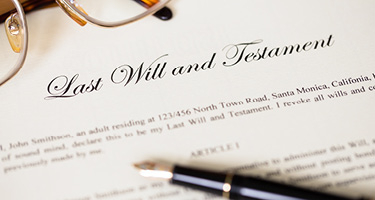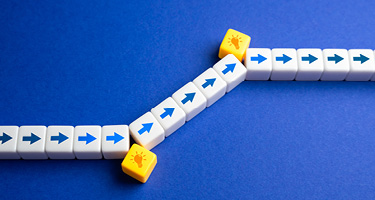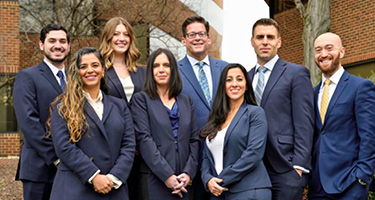The importance of creating a will cannot be overstated, as it serves as a vital legal document that outlines your wishes for the distribution of your assets and the care of your dependents after your death.
Why Create a Will and Trust?
Some of the key factors that make creating a will vital include:
Control Over Asset Distribution
A will allows you to decide how your property, financial assets and personal possessions will be distributed among your beneficiaries. Without a will, the state will determine the distribution of your assets based on intestacy laws, which may not align with your wishes.
Protection of Minor Children
If you have minor children, a will enables you to appoint a guardian who will be responsible for their care and upbringing in the event of your death. Without a will, the court will decide who will care for your children, which may not be the person you would have chosen.
Reduce Family Conflicts
By clearly outlining your wishes in a will, you can help minimize disputes among your family members over the distribution of your assets. This can prevent costly and time-consuming legal battles and promote harmony within the family during a difficult time.
Support for Charitable Causes
A will allows you to leave a portion of your estate to charitable organizations, helping you to make a lasting impact on causes you care about even after your death.
Tax Benefits
Depending on the jurisdiction, a well-crafted will can help reduce the tax burden on your estate and beneficiaries by taking advantage of tax exemptions, deductions and other planning strategies.
Appointing an Executor
A will allows you to choose an executor who will be responsible for managing your estate, paying off debts and distributing assets according to your wishes. This ensures that someone you trust will carry out your instructions, making the process smoother and more efficient.
Peace of Mind
Creating a will gives you the peace of mind that your loved ones will be taken care of, and your assets will be distributed according to your wishes after you are gone. This can alleviate some of the stress and anxiety associated with thinking about the future.
How Do I Create a Will?
Ultimately it doesn’t take much to create a will. One can be crafted from a few estate planning documents and a keen knowledge of state laws and other legal requirements.
It can be very beneficial to have a lawyer’s guidance. While it’s possible to create a will without a lawyer, many states have particularly nuanced laws regarding estate planning. To ensure that you can secure all of the benefits of a will that were described above, it’s a good idea to hire an attorney.Determine the Best Type of Will
The first step in creating a last will and testament is to determine the type of will you want and need. There are several types of will that you may choose from, depending on the specifics of your estate. These might include:
- Simple wills.
- Testamentary trust wills.
- Joint wills.
- Living wills.
There may be state-specific distinctions between these documents, and, for example, a living trust and a lawyer can guide you through them to help prevent your assets from being subject to a probate process.
Determine the Beneficiaries
The next step is to determine and identify your beneficiaries. There are a number of options as to who can inherit your assets and property, including:
- Family members.
- Friends.
- Charities.
- Pets.
An attorney can help you to carve out a codicil for everyone who is important to you.
Appointing an Executor
An executor plays a critical role in the administration of a deceased person's estate. They are responsible for carrying out the instructions outlined in the will and ensuring that the deceased's assets are distributed according to their wishes. As you create your will, you will designate an executor and perhaps an alternate as well.
Finalizing and Safeguarding the Will
Once your document is complete, you will finalize it. This generally involves notary services and may also involve one or more witnesses. Then, the person making the will needs to determine a safe storage place, like a safe deposit box, and communicate the location and means of access to their family members.































